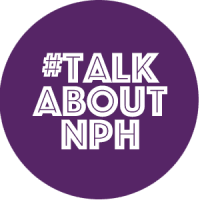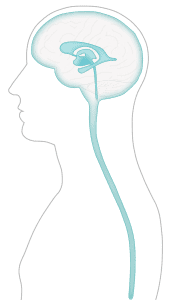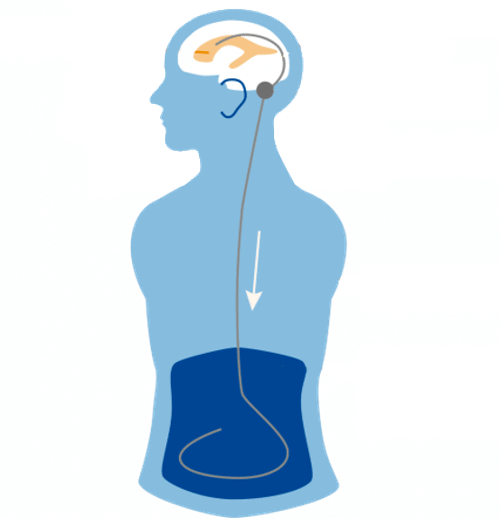iNPH – Home


Help more people to improve their quality of life by talking about NPH
Although medical knowledge is available, awareness of normal pressure hydrocephalus, NPH, is low among the general public and in some cases also in general healthcare *. We want to change this and need your help!
* A low proportion of diagnosed NPH patients or misdiagnosed patients means that few are getting the operation and treatment needed. Without proper treatment, the patient deteriorates and it is also proven that they die prematurely.
Hydrocephalus
Hydrocephalus is a chronic medical condition caused by excessive fluid formation in the brain, which can affect everything from infants to the elderly. But it can also affect you during life associated with trauma or bleeding in the brain.

1 in 10 dementia patients
may have NPH, but fewer than 20% get a diagnosis.

1 in 100 seniors
develops NPH, which is often mistaken for Alzheimer’s or Parkinson’s.

1 in 1000 infants
are born with hydrocephalus.

Indications for NPH
The most common form of hydrocephalus in adults is normal pressure hydrocephalus (NPH). NPH mainly affects elderly people, and if it is not possible to identify an underlying cause, it is so-called idiopathic normal pressure hydrocephalus (iNPH). INPH is a chronic
disease as untreated leads to irreparable injuries.
Normal pressure hydrocephalus (NPH) is typically characterized by a triad of symptoms that are also included in the dementias Parkinson’s and Alzheimer’s, which means that misdiagnosis can occur. These symptoms can occur individually and at different times and may vary in severity. They are also common in the case of normal aging, which means that the suspicion of NPH is likely to never be aroused. Läs mer om symptomen nedan, och gör gärna ett självtest. >>Formulär för självtest.
Lyssna på professor Jan Malm, neurolog vid Umeå universitetssjukhus, som gästade tv-programmet Fråga Doktorn den 19 april 2021 och förklarar vad NPH är och hur symptomen ser ut. Fråga Doktorn_2021-04-19_om NPH


Walking disorders
Can vary in severity from mild imbalance to inability to stand or walk at all. The aisle gait is often wide-based with short steps, slow and shuffling steps. Walking disorders are often the most obvious symptom and the first symptom that becomes apparent.

Cognitive impairment / Mild dementia
Described as a lack of interest in everyday activities, forgetfulness, difficulty in dealing with routine tasks and short-term memory loss. NPH is one of the few treatable forms of dementia.

Impaired bladder control
Mild cases are typically characterized by frequent or urgent urination and in severe cases is a complete loss of bladder control or urinary incontinence. Some people with NPH never show signs of bladder problems.
The film comes from the Swedish Neuroregister, which is a national quality register, and on their website for hydrocephalus you can see the walking characteristics of a patient with normal pressure hydrocephalus before and after shunt surgery.
Magnetic gait
Walking and balance difficulties, one of the symptoms, are common in NPH patients and are very characteristic by nature. Patients experience the gait as uncertain, stiff and slow. The feet are sometimes perceived as glued to the surface or that the legs feel heavy like logs. The walking is distinctly slow, wide-based (wide between the feet) with short shuffling steps and decreased movements in the hip, knee and ankles. It is difficult for the patient to climb stairs or walk on uneven surfaces such as in the forest and land. It is also typical that patients have poor balance with repeated falls and injuries.
There is help available
If you, or a relative, have one or more of the symptoms, there is help available. Modern techniques and methods can help make a diagnosis, and thus investigate whether a person is treatable. Contact your nearest health centre for more information.
Investigation
Clinical exams to evaluate symptoms is done by experts at hospitals and consists of radiological examination of the brain, neurological/ physiotherapy assessment specifically focused on gait and balance, neuropsychological assessment and blood tests for biochemical analyses for mainly differential diagnostic reasons. In addition, lumbar puncture is also done with cerebrospinal fluid (CSF) tests with measurement of intracranial pressure and flow of cerebrospinal fluid, using, for example, CELDA System for predicting shunt responsiveness and/or determine shunt pressure. After that, the correct diagnosis can be made and the proper treatment can be planned for. CELDA System is also used to investigate the functionality of existing shunts without having to take it out first.


Operation
INPH is one of the few treatable dementias. NPH can only be treated by surgical intervention. A shunt is placed in the ventricles of the brain and connected to the abdominal cavity, thus draining excess cerebrospinal fluid from the brain. This procedure has been performed thousands of times and about 80% of patients get better. Surgical technology has improved over the years and the proportion of complications is now about 20%.
Kerstin Andrén is a neurologist and researcher from Gothenburg and has studied how NPH develops over time and what long-term results and survival look like after treatment. Kerstin shows in her thesis that it is crucial to operate on patients who are diagnosed without undue delay and that the results of surgery are good even in the long term.
The title of the thesis is Natural course and long-term prognosis in idiopathic normal pressure hydrocephalus – The effect of delayed surgery and clinical factors on outcome and survival.
>>Kerstin Andren_Populärvetenskaplig sammanfattning_NPH avhandling
More information
If you are looking for more information, guidance or support, please visit the Swedish Association normal pressure hydrocephalus for Patients and Relatives, its American counterpart Hydrocephalus Association, The Swedish Neuroregistry or your nearest health centre. Please also download the brochure about the NPH association. Below you will find the American Patients’ Association’s series “Ask the Expert” where they explore NPH, its symptoms and treatments.
